While US citizens are electing their next president, the world is watching them with suspense. Will they re-elect President Trump who will keep continuing to disrupt politics as we know it? Or will they choose former Vice-President Biden who is presenting himself as the candidate of unity and continuity? We checked in with EU citizens to find out how they feel about the US and its election.
In President Trump’s first year in office we interviewed EU citizens every three months about their appreciation of the newly elected US-President. While President Obama was generally adored by Europeans, President Trump had a hard time winning Europeans over. They strongly disapproved of him at the very beginning of his term, when only 29 percent (March 2017) were in his favor, and thought of him even less after his first year in office, where his approval in Europe had already dropped to 23 percent (December 2017). That said, Europeans kept believing in the importance of the EU-US relationship and wished for a close cooperation (see, “Cold Love. President Trump and the European Public.” January 2018 https://eupinions.eu/de/text/cold-love).
Three years on, President Trump’s standing among Europeans has not improved. If they had a say in this election former Vice-President Biden would win without question. In September 2020, 45 percent of Europeans would have chosen Biden, while only 17 percent would have voted for Trump. The rest would have voted for neither candidate. The disaffection for Trump is particularly strong in Germany with just 10 percent supporting Trump, while 56 percent support Biden. The only European “battleground state” would be Poland where Trump would enjoy an 8 point lead over Biden (38 percent versus 30 percent). This is consistent with earlier findings showing that the Poles have generally been more positive towards US administrations and their politics ever since the Cold War. President Trump has also benefitted from this historical fact, with his approval ratings in Poland standing at a relatively high 65 percent back in mid-2017. This attitude is also reflected in positionings of the Polish government, often being at odds with European, but in line with US administrations’ politics. One example would be that when it comes to matters of national security, the Poles tend to favor their US-American ties over their European allies. Of course, this has not gone unnoticed on the Trump administration, that did not hesitate to play the divide and rule game – most recently by the widely criticized redeployment of US troops from Germany to Poland. Despite all this, President Trump’s approval amongst the Polish population, albeit still comparatively high, has gone down significantly over time.
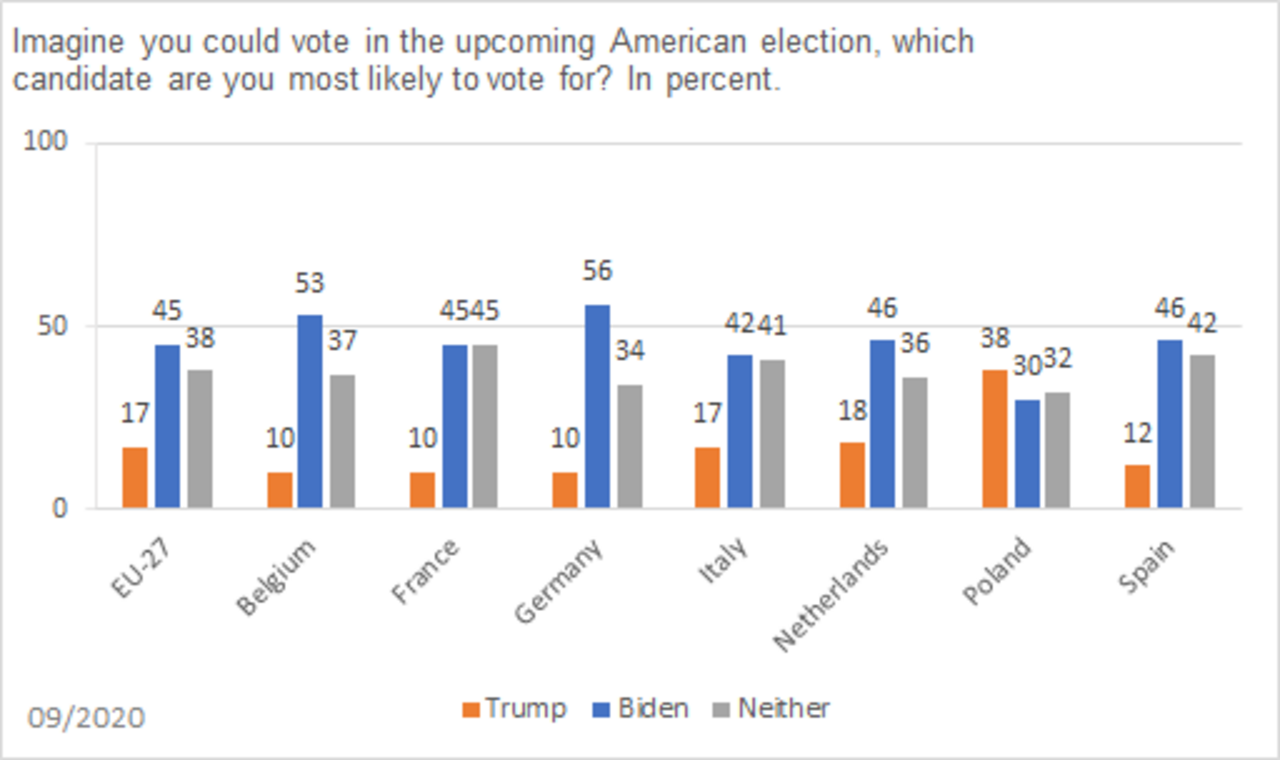
Figure 1 - American Election
What is more, Europeans appear to have lost faith in the performance of American democracy, 52 percent believe it is ineffective. 65 percent in France, 64 percent in Belgium, 61 percent in Germany. Once again, Poland is the outlier in the EU with 77 percent of Poles believing in the effectiveness of democracy in the US.
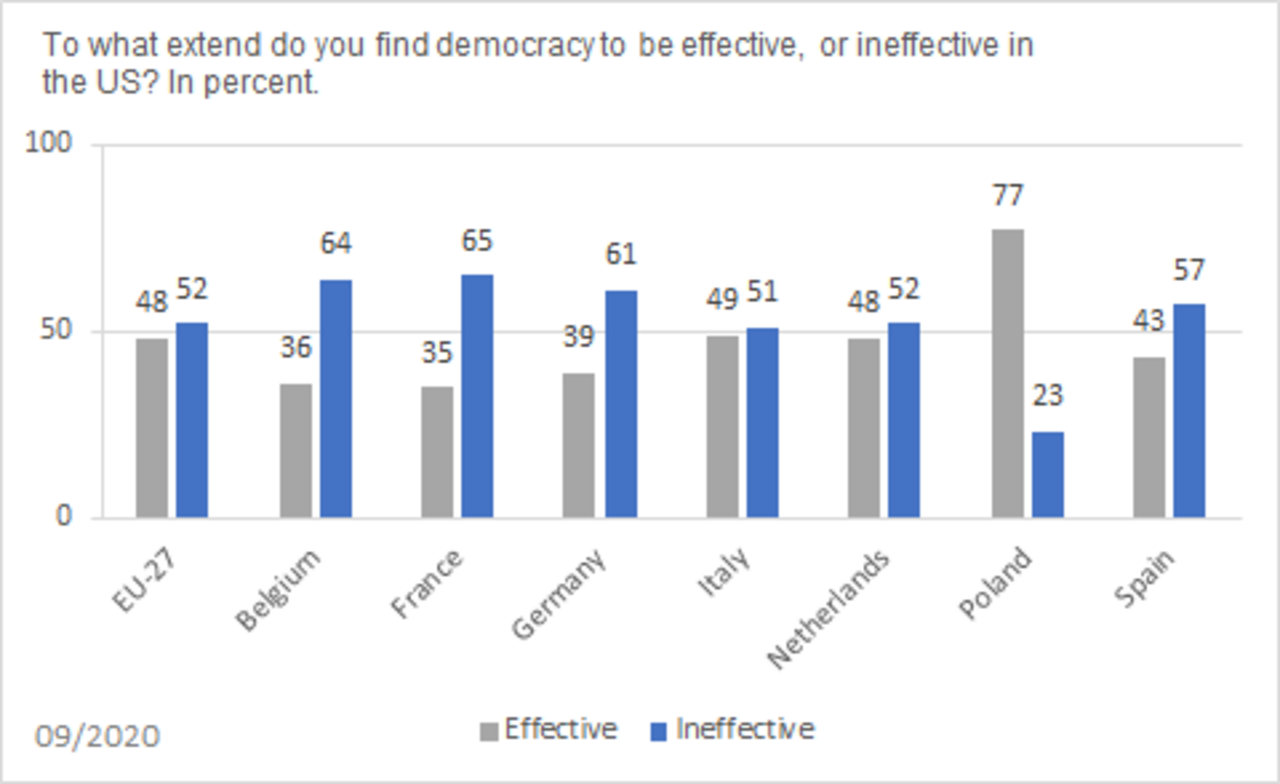
Figure 2 - Effectiveness US Democracy
Consequently, the great reputation of America in Europe has suffered a significant blow. When asked about the status of the US as the “greatest country in the world”, an image still deeply engrained in the American identiy, 67 percent of Europeans disagree with this statement. Not even the Poles agree. 58 percent of Poles do not support this statement, next to 83 percent of Belgians, 79 percent of the French, 78 percent of the Germans, 72 percent of Italians and 76 percent of the Dutch. This time, the Spanish are the outlier in that 61 percent of Spanish respondents agree with the statement that the US is “the greatest country in the world.”
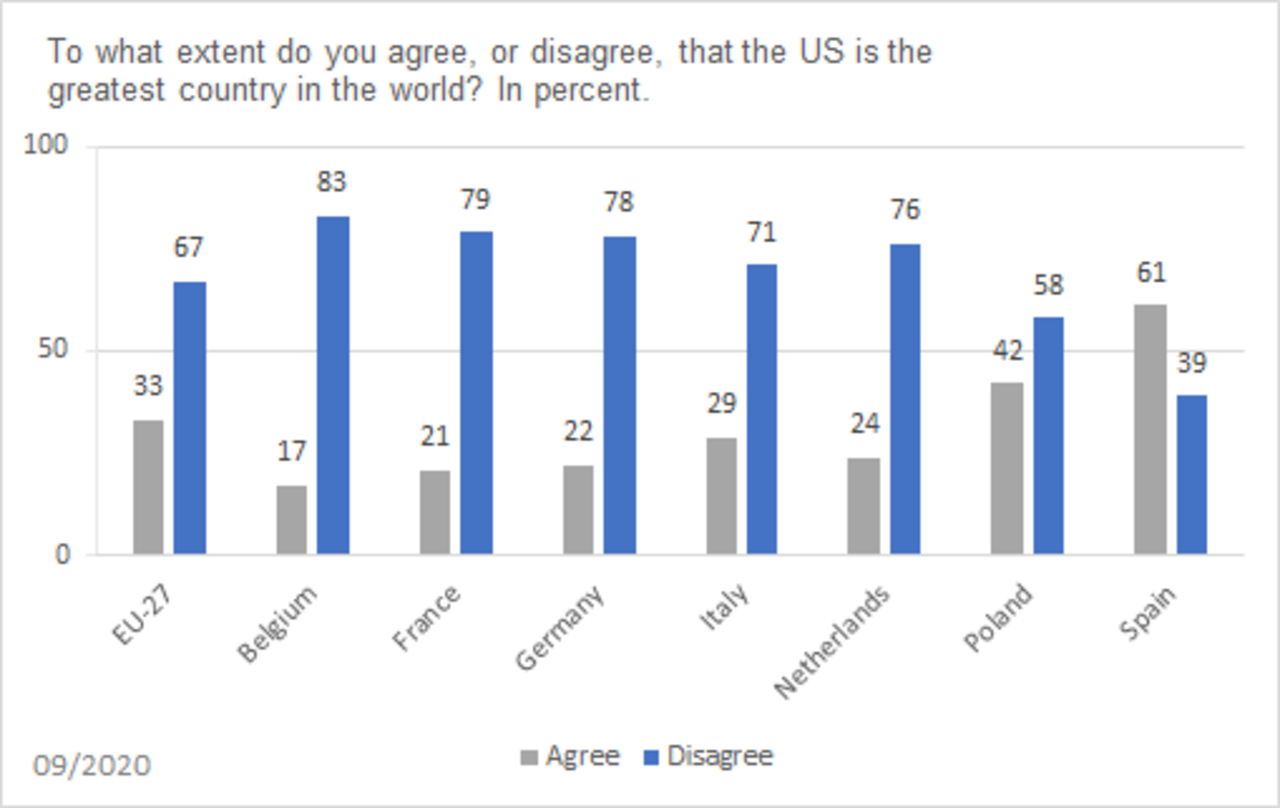
Figure 3 - US Greatest Country
Nevertheless, when Europeans are asked about their country’s closest partner, they choose the US over any other non-European country. In the minds of Europeans, the United States of America ranks as their most important partner worldwide. 15 percent of Europeans name the US as the closest partner. Next in line is China with just 5 percent.
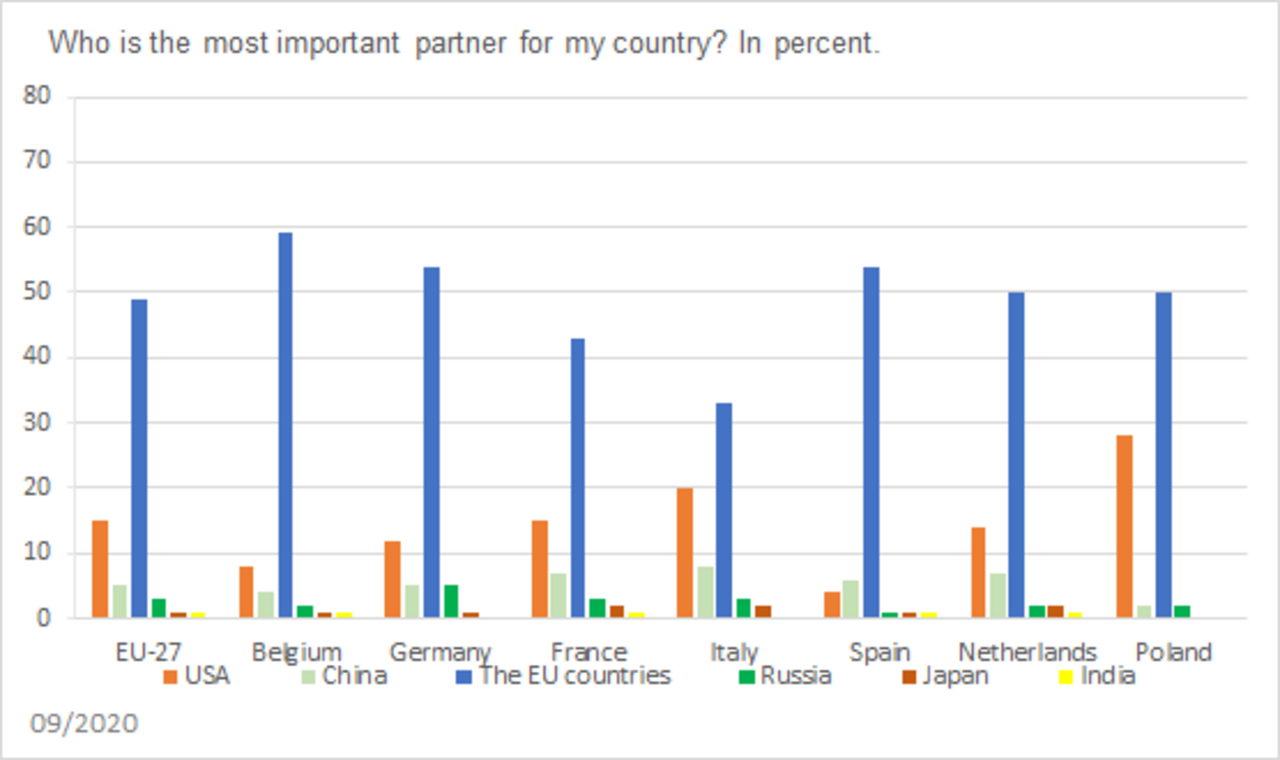
Figure 4 - Most important partner for my country
When asked about what makes up this US partnership, the answers are rather pragmatic. The majority of Europeans believe that we share economic interests, 32 percent believe that we share political interests, while only 22 percent believe in common values.
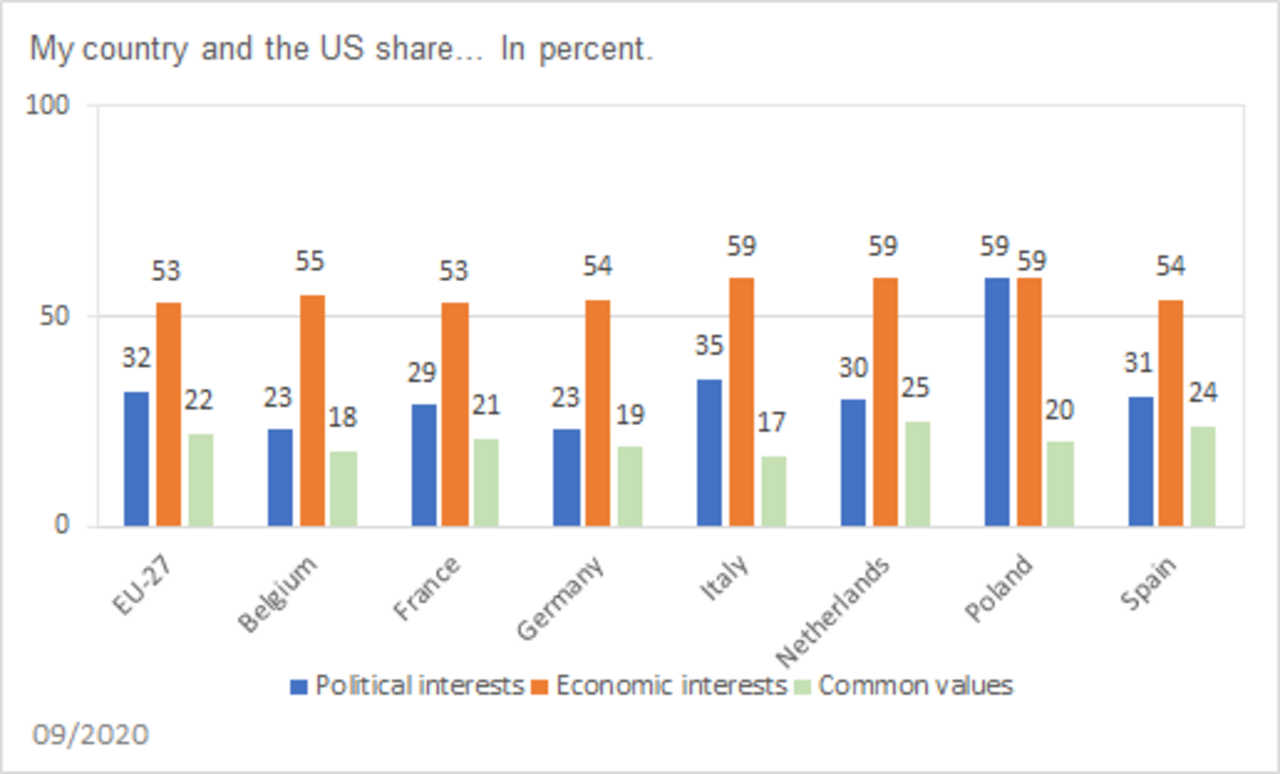
Figure 5 - The US and my country
Donald Trump’s presidency has had a sobering effect on Europeans. They appreciate the importance of the EU-US relationship, but do not believe it’s a “shining city upon a hill”. They wish for an American president that does not promise greatness for America in and of itself, but for a more traditional leader who aims for cooperation instead of conflict. As the decision to elect the next US President naturally lies with the Americans, Europeans can only hope that the US-EU relationship steers towards calmer waters again. Irrespective of the election outcome, European leaders should continue their efforts to revive the transatlantic relationship.
As a first step Europeans should invest in European sovereignty. If the EU is a stable and functional political entity capable to defend their interests in their neighborhood and on the world stage, the EU/US relationship will suffer fewer imbalances. This will enable both sides to focus on the issues of upmost importance. Climate change comes to mind. The rise of China as a world power. The digital revolution and its effects on our way of life, our economy and politics. The greater European neighborhood aka Russia, Turkey, the Near East, the Arabian Peninsula will continue to be of common concern. Not to mention the future of Africa. Washington will be busy in other parts of the world whoever the president. Europe needs to learn to take care of itself. The quicker the better.

Data Figure 4

Data Figure 5
Method
The sample with a size of n=13.080 was drawn by Dalia Research between 09.07.2020 and 28.09.2020 across all 27 EU member states, taking into account current population distributions with regard to age (14-69 years), gender and region/country. In order to obtain census representative results, the data were weighted based upon the most recent Eurostat statistics. Calculated for a sample of this size and considering the design-effect, the margin of error would be +/-1 % at a confidence level of 95 %.


